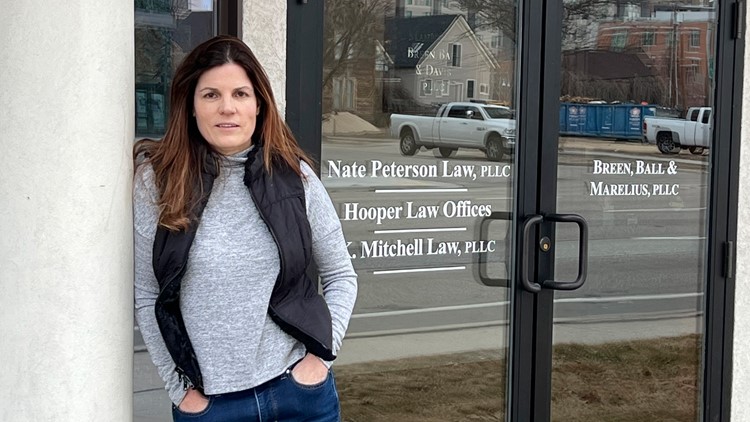BOISE, Idaho — A legal loophole in Idaho that allows parents of teens to nullify child custody agreements by arranging child marriages will remain in effect, under a ruling from the state Supreme Court on Tuesday.
In a split decision, the high court declined to decide whether Idaho's child marriage law — which allows 16- and 17-year-olds to marry if one parent agrees to the union — is unconstitutional. Instead, the justices said that once a child is emancipated by marriage, the family court loses jurisdiction over custody matters.
The case arose from a custody battle between a Boise woman and her ex-husband, who planned to move to Florida and wanted to take their 16-year-old daughter along. The ex-husband was accused of setting up a “sham marriage” between his daughter and another teen as a way to end the custody fight.
It's not a rare scenario — all but seven states allow minors below the age of 18 to marry, according to Unchained At Last, an organization that opposes child marriage. Nevada, Idaho, Arkansas and Kentucky have the highest rates of child marriage per capita, according to the organization. Although minors are generally considered legally emancipated once they are married, they generally still have limited legal rights and so may be unable to file for divorce or seek a protective order.
Erin Carver and William Hornish divorced in 2012, and only their youngest was still living at home last year when both sides began disputing the custody arrangements.
Carver said she learned Hornish was planning a “sham marriage” for the teen to end the custody battle, and asked the family court magistrate to stop the marriage plans. Several days later, the magistrate judge agreed, but it was too late. The teen had already married.
The high court heard arguments in March, and Carver's attorney contended that the child marriage law is unconstitutional because it allows one parent to terminate another parent's rights without due process. Hornish's attorney, Geoffrey Goss, countered that his client had acted legally and followed state law.
In Tuesday's ruling, a majority of the Supreme Court justices said that because the marriage had occurred before an initial ruling was made, the family court lost jurisdiction. Once a child is married, they are emancipated and no longer subject to child custody arrangements, the high court said.
The justices also declined to weigh whether the law is legal under the state constitution, saying in part that neither side provided enough legal arguments on the matter. The high court did find, however, that the law was not clearly unconstitutional.
Justices Gregory Moeller and John Stegner dissented from the majority opinion, finding that the lower court could have done more to “address the outrageous actions of a father,” by making the initial order retroactive. That would have allowed Carver to seek an annulment of the marriage as the custodial parent.
“Father has not only made a mockery of our marriage laws, he has also exposed his 16-year-old Daughter to the potential life altering consequences of an ill-conceived and hasty marriage of convenience,” Moeller wrote in the dissent.
The Associated Press could not find contact information for Hornish, and his attorneys did not immediately respond to a request for comment. Neither Carver nor her attorney immediately responded to a request for comment.
Other Idaho families have been watching the case closely.
Ryan Small, a Boise man who has been embroiled in a similar custody battle, said he was disappointed by the ruling. Small was trying to keep his ex-wife from moving out of state with their son last winter when he learned the 16-year-old boy had been secretly married off to another teen with his mother's permission.
Small hasn't seen the teen since Nov. 15, 2021, and because the boy is considered self-emancipated, Small has little ability to track him down or bring him back to Idaho.
“I am disappointed that the Supreme Court decided to punt the issue of the constitutionality of the law,” Small said on Tuesday. “The role of a parent is to protect their child, and the court not taking up the constitutionality of the law will allow abusive parents to use their children as pawns to sidestep the protection of the court.”
DOWNLOAD THE KREM SMARTPHONE APP
DOWNLOAD FOR IPHONE HERE | DOWNLOAD FOR ANDROID HERE
HOW TO ADD THE KREM+ APP TO YOUR STREAMING DEVICE
ROKU: Add the channel from the ROKU store or by searching for KREM in the Channel Store.
Fire TV: Search for "KREM" to find the free app to add to your account. Another option for Fire TV is to have the app delivered directly to your Fire TV through Amazon.
To report a typo or grammatical error, please email webspokane@krem.com.



